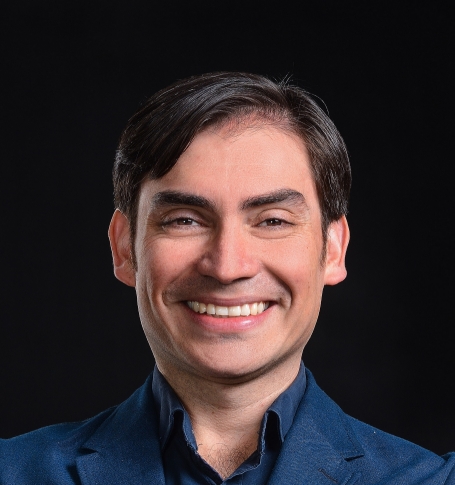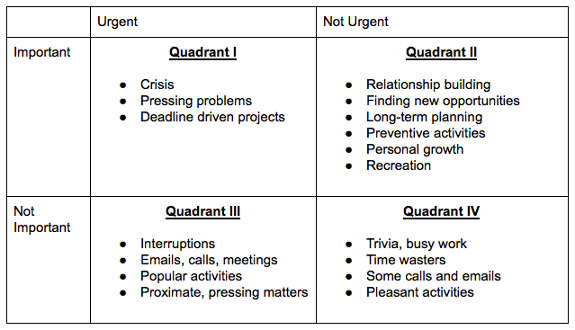Time is our most valuable resource because it is limited, and we cannot get more of it. If we manage our money, we should certainly manage our time.
In The 7 Habits of Highly Effective People, Stephen Covey presents a key framework for understanding how to use our time effectively: the Time Management Matrix, also known as the Four Quadrants.
This model categorises everything we do based on importance and urgency, guiding how we should prioritise our actions.
Covey explains that we should primarily focus on Quadrant II, which includes important but non-urgent tasks. These are the activities that bring us closer to our goals and make the biggest impact over time. However, since they don’t demand our immediate attention, they can easily be overlooked. To prevent this, we need to schedule Quadrant II activities deliberately. Whether it’s planning, exercising, or learning, setting aside dedicated time ensures that these essential tasks don’t get pushed aside by urgent matters.
Quadrant I consists of activities that are both urgent and important. These are often disruptive and unavoidable, so while we must handle them, we should aim to reduce them. By investing more time in Quadrant II, we can prevent many of these crises from arising in the first place.
Quadrant III includes tasks that are urgent but not important, such as phone calls, meetings, and notifications. They demand our attention but don’t truly contribute to our priorities. Whenever possible, we should delegate or minimise them.
Lastly, Quadrant IV consists of activities that are neither urgent nor important, such as excessive social media scrolling or binge-watching TV. This doesn’t mean we can’t relax and have fun; after all, we need downtime. The key is to be mindful of how we spend our time. Are we scrolling on our phones out of habit, or have we consciously chosen to do so? Watching a movie is fine, but spending an entire weekend in front of the TV may not be the best use of our time.
According to Covey, being intentional about how we spend our time is key to being highly effective.
His book offers many valuable insights on the subject, and I highly recommend reading it to improve efficiency.
Cheers,
José Miguel
Share if you find this content useful, and Follow me on LinkedIn to be notified of new articles.

